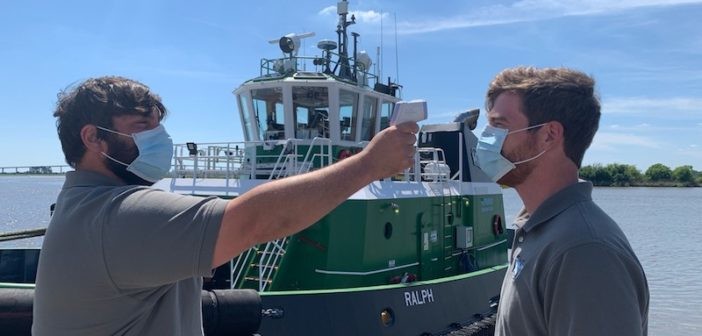The nation has been affected by the global pandemic for about a year now. But despite that, the tug and barge industry has been quietly going about its business moving cargo and playing an important role in the response to the Covid-19 crisis.
As Pam Glass reported in the February issue of WorkBoat, for the past 11 months, through lockdowns and major economic shifts, vessels plying the inland and coastal waterways have kept working under strict health protocols, assisting ships arriving at U.S. ports and moving products throughout the inland river system that are keeping the national and global economy going.
For Jennifer Carpenter of the American Waterways Operators, her first year as chief of the organization has been a challenging one.
“It’s been a wild ride,” she told me in a recent interview. “There’s no way I would have predicted in January 2020 what we would experience over the course of the year … a global pandemic, a recession, the unprecedented severe weather from coast to coast.”
Most barge companies have seen demand soften, especially for energy-related products as the pandemic has depressed the worldwide demand for oil. A bright spot has been barge lines that transport grain mostly for export.
2020 was a tough year for the industry, but through it all, barge companies kept moving cargoes, prioritized mariner health and safety, and stayed on track with Subchapter M compliance.
Currently, the No. 1 issue for AWO and the maritime industry is prioritizing Covid-19 vaccinations for mariners.
States have the lead on this issue, so AWO has teamed up with other waterways organizations to reach out to about 25 inland waterways and coastal state governors to urge them to prioritize mariners, given their critical role in the economy as well as the unique living and working situations that they are in, Carpenter said.
AWO has raised the issue again with the federal government. Exploring a national vaccination track in addition to the state-by-state approach is something that needs to be seriously explored, AWO said.
We agree.




